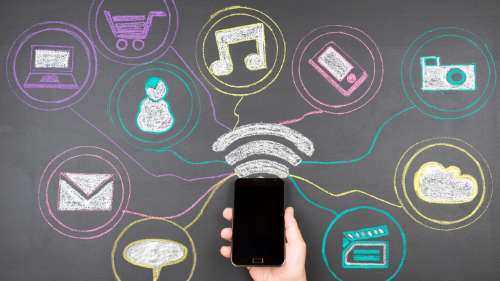Information Overload and Its Impact on Anxiety
We live in an era where information is available 24 hours a day. News,
articles, messages, videos, social media. Everything competes for your
attention. And while access to knowledge is positive, it becomes a constant
source of anxiety when the mind no longer has space to process so much stimulus.
Information overload occurs when you receive more data than you can
assimilate. Your brain, saturated, starts to feel overwhelmed. This causes
difficulty concentrating, making decisions, or resting. You find it hard to
disconnect because there is always something else to read, check, or
understand.
This excess also generates a constant sense of urgency. The idea that
you need to be informed, up-to-date, or current becomes a silent pressure. You
no longer consume information out of necessity, but out of anxiety. You feel
that if you don't read everything, something important will escape you. And
that feeds fear, insecurity, and mental exhaustion.
Information anxiety manifests as hyperconnection. You jump from one app
to another, change topics quickly, and your attention fragments. This
dispersion not only tires you, but also weakens your ability to be present. You
disconnect from what you are living because your mind is trapped in the
constant flow of stimuli.
Additionally, much of the available information is contradictory,
alarmist, or unreliable. This increases confusion and discomfort. Not knowing
what is true or what to do with so much content generates frustration and
paralysis. Instead of feeling clearer, you feel more lost.
To reduce this impact, it is essential to set filters. Not everything
that circulates deserves your attention. Consciously choose what to read, from
whom, and at what time. It's not about isolating yourself from the world, but
about taking care of your mental energy. Set clear limits. Avoid checking news
or social media when you wake up or before going to bed. Create spaces for
total disconnection, even if it's just for a few minutes a day.
It is also useful to return to simplicity. Instead of accumulating data,
listen to what you feel. What do you need at this moment? Does that information
really serve you, or are you just trying to calm internal anxiety? The pause is
more powerful than excess.
And if you feel that you are losing control, that anxiety is overwhelming
you, or that you cannot stop consuming content, talking to a professional
helps. Often, behind that need to know everything, there is a deeper fear that
needs to be heard.
Your mind was not made to absorb everything. It was made to live,
reflect, and be at peace. Take care of it.



